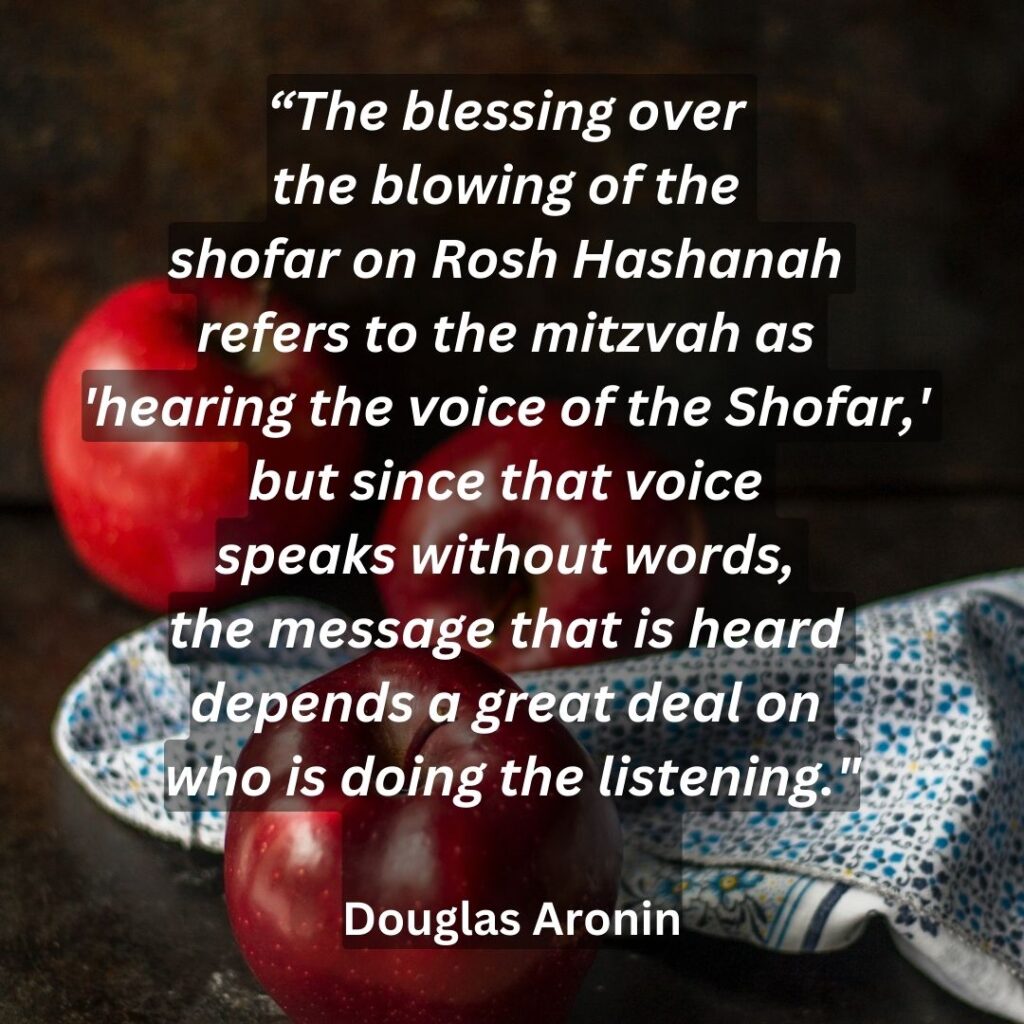“The blessing over the blowing of the shofar on Rosh Hashanah refers to the mitzvah as ‘hearing the voice of the Shofar,’ but since that voice speaks without words, the message that is heard depends a great deal on who is doing the listening.”
Douglas Aronin
Happy Monday!
I hope you had a lovely weekend!
This past weekend was one of the highest holy days in the tradition of Judaism, Rosh Hashanah. The importance of this day signifies the beginning of a new year. It’s a time to reflect on the previous year and begin to prepare for the new one. Traditions include introspection and repentance as preparations are made for Yom Kippur, the Day of Atonement, this coming weekend. According to USA Today (2023), Rosh Hashanah is a celebration of humanity and a way to awaken to new ideas.
Douglas Aronin, retired attorney and writer, speaks to unsaid messages:

As the Jewish community prepares to listen to unheard messages, they “think about the ways that we want to create a safe community, a welcoming community, a warm community and then be able to enrich the world around us after having those moments of introspection” according to Rabbi Rob Gleisser of Penn State Hillel (USA Today, 2023).
These thoughts prompted me to consider messaging in general. What thoughts do we believe about ourselves, and how are they influencing our processes and decision-making? Are there things we’ve been programmed to contemplate that don’t necessarily serve our best interests? Do we worry too much about things that remain unsaid, over which we have little control, and not enough about elements in our lives that we can change? Who’s listening, and what are we listening to?
In my line of work, listening to what is said is paramount to healing and growth. However, listening to what is not said sometimes has an even more significant impact on the process of moving through challenges and onto a path of change. An example is working with couples.
Generally speaking, couples get into trouble when they neglect to keep their lines of communication open. They stop sharing with one another and stop hearing the unsaid pain or frustration. They stop listening and draw conclusions based on their individual assessments of the situation. Time and time again, couples need to be reminded that without effective, authentic, and transparent communication, their relationships will suffer, sometimes causing irreparable damage.
Of course, this doesn’t only happen in couples. Relationships of all types struggle when someone’s not listening to what’s said and what is unsaid. So, the question remains: who’s listening? Are we listening to the unsaid messaging from our peers, our spouse, our children, our best friend, maybe it’s our parents? Do we make a point to be effective communicators and intentional listeners?
This week, let’s consider taking the time to reflect on our listening skills. Discover our tendencies to listen to our thoughts and advice to ourselves. Please spend time with your children learning about what they’re not saying. Maybe take some time at the “water cooler” to listen to what people are saying without joining in the negative comments and perhaps provide a positive light of hope to someone who needs it. The effort may be just the right experience to discover new listening skills.
Be Well & Be Blessed!
Lucinda
Comments by lucinda